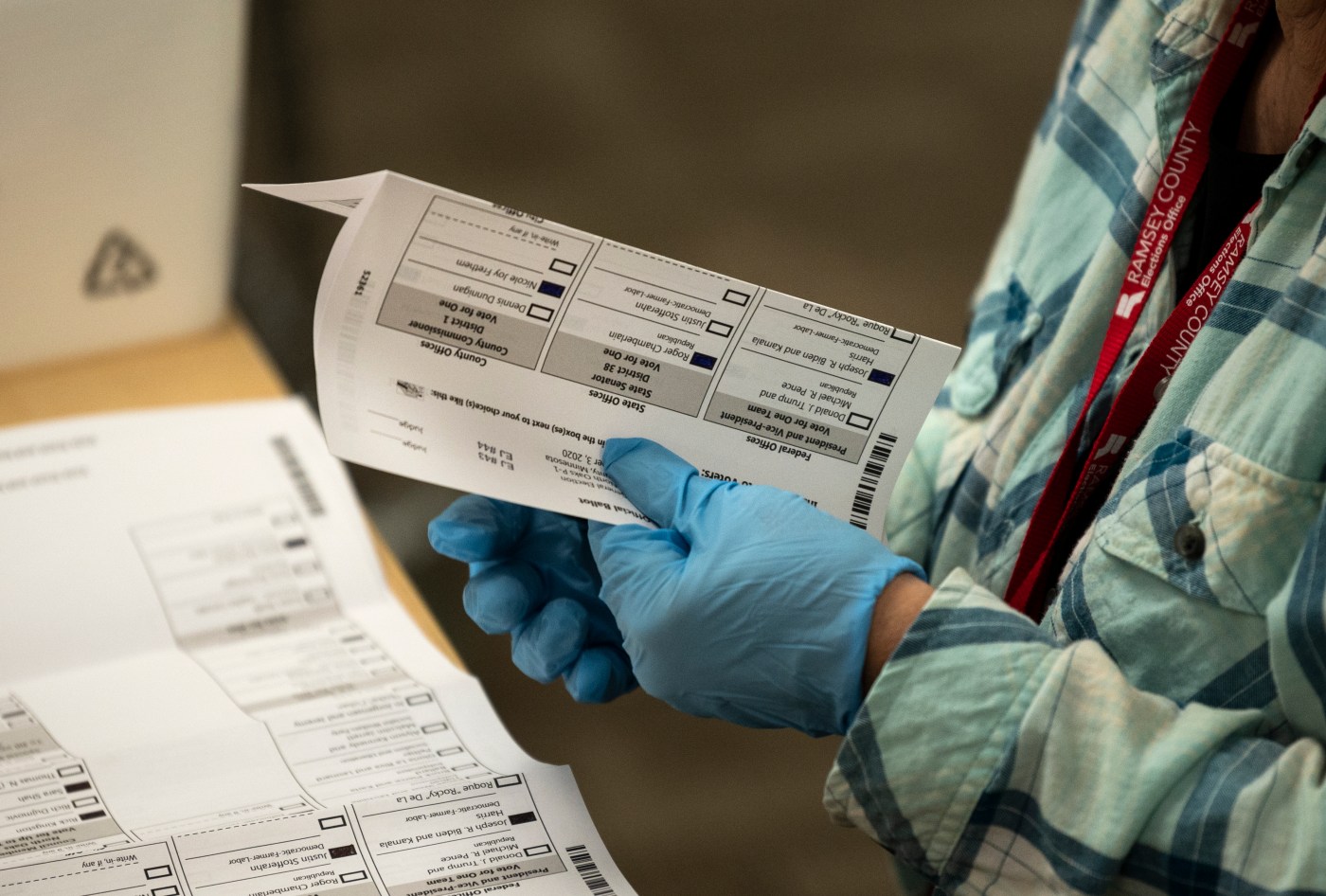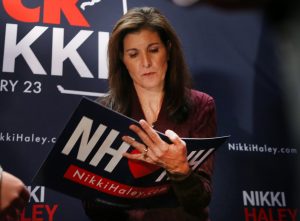
Early voting in Minnesota’s presidential primary starts Friday
Minnesota’s 2024 presidential primary is March 5, but starting Friday, voters can begin casting absentee ballots for candidates with one of the state’s three major parties.
State elections officials on Thursday said they’re already preparing for any challenges that may arise from disinformation, foreign hacking or harassment of poll workers. Minnesota Secretary of State Steve Simon, the state’s top elections administrator, said elections officials take many measures to ensure security, including public testing of ballot machines, and have multiple steps of review for absentee ballots.
“There’s no question that this election year will be among the most intense in history. The presidential candidates will likely inspire strong feelings,” he said. “I just want to make sure Minnesotans know that our office is working hard with partners all over the state on all these areas … physical security, cyber security, providing accurate information and voter outreach.”
Simon also noted the emerging issue of artificial intelligence-generated “deep fake” videos, images and audio being used to spread false information ahead of an election. However, he noted his office has not yet identified an instance of that happening in Minnesota.
Lawmakers last year made it a crime to spread misinformation about elections and passed a separate bill specifically addressing the phenomenon of “deep fakes.”
Who’s on the ballot?
Minnesota’s three major parties are participating — Democrats, Republicans and Legal Marijuana Now. Each party has a separate ballot.
Candidates on the Democrats’ ballot include President Joe Biden, Minnesota Congressman Dean Phillips, Jason Palmer, Eban Cambridge, Marianne Williamson, Frankie Lozada, Gabriel Cornejo, Cenk Uygur and Armando “Mando” Perez-Serrato. All three parties have a write-in spot, and Democrats also have an “uncommitted” option.
Republican primary candidates listed on the ballot include Donald Trump, Florida Gov. Ron DeSantis, former South Carolina Gov. Nikki Haley, as well as candidates Vivek Ramaswamy and former New Jersey Gov. Chris Christie, who have dropped out of the race.
Legal Marijuana Now candidates include Vermin Supreme, Krystal Gabel, Dennis Schuller, Edward Forchion and Rudy Reyes.
Parties had to submit their list of candidates by Jan. 2, before some of the candidates listed had dropped out.
A slate of presidential primaries and caucuses are scheduled between now and March 5, and there’s a chance candidates may drop out in the weeks leading up to Minnesota’s primary.
That means those who vote early may risk backing a candidate who is no longer in the race by the time their ballot is counted.
Simon said absentee voters can “claw back” their ballot until Feb. 15 if they change their mind for any reason, but after that, there are no more opportunities for redos.
“It might be a signal that people might want to wait to cast an absentee ballot in a presidential nominating primary contest, depending on your party or your preferences because there’s no guarantee that that candidate will still be in the race by March 5,” Simon said.
Who can vote?
Minnesota has an open primary, meaning anyone 18 or older who is a citizen of the U.S. and not currently incarcerated can participate.
Felons on probation had their voting rights restored last year, and the new state law remains in effect despite an ongoing legal challenge from a conservative group.
Another change that went into effect last year allows people who are 16 and 17 years old to pre-register to vote.
Unlike many other states, Minnesota does not require party registration to participate in a primary. But voters have to choose one party’s ballot.
Voters must request the ballot of their party of choice, which is recorded as private data by the state and is shared with the party the voter chooses. Before this year, the party a voter chose got shared with all the parties, Simon said.
Party choice is shared, but which candidate the voter chooses on a ballot is not shared with anyone.
Voting dates
Voters have until Feb. 13 to register early or can register to vote at the polls on the day of the election.
Minnesota is one of 16 states that hold a presidential primary on March 5, known as Super Tuesday.
The presidential primary is the first statewide election of 2024. In August, Minnesota has a primary for the U.S. Senate seat held by Democrat Amy Klobuchar, as well for as many state House races in districts across Minnesota.
The general election is Nov. 5.
Related Articles
After 20 years in office, state Rep. Pat Garofalo will not seek reelection
Republican caucuses live updates: Trump wins Iowa’s leadoff caucuses, while DeSantis takes second ahead of Haley
Iowa caucuses: What to watch as voters weigh in on the Republican campaign’s first contest of 2024
Iowa campaign events are falling as fast as the snow as the state readies for record-cold caucuses
All 4 Republicans in Minnesota’s congressional delegation back Trump’s latest White House bid


